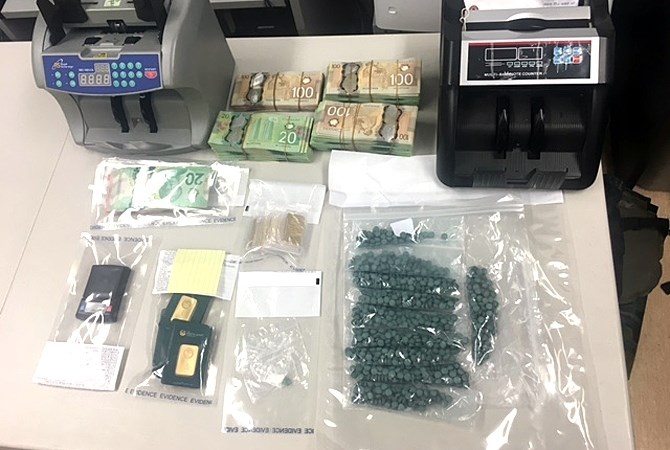
Image Credit: Shutterstock
July 21, 2016 - 8:00 PM
DISCONTINUATION OF OXYCONTIN 'FAILED EXPERIMENT IN PROHIBITION'
THOMPSON-OKANAGAN – Medical health professionals behind the scenes have been speaking candidly to each other about fentanyl and the increasing number of deaths by overdose in the province — some are pointing fingers at the enhanced prohibition of opiates.
In a series of emails made public recently, the B.C. Centre for Disease Control, the B.C. Ministry of Health and several other agencies say despite better education about the dangers of opioids and the increased availability of naloxone, a life-saving drug that halts overdose, more people are dying every year.
Dr. Brian Emerson of the B.C. Ministry of Health calls the trend “depressing.”
“Perhaps we need to start thinking about more aggressive and definitive interventions," he writes. "It is clear that people are going to use opioids irrespective of the risk so giving them small quantities of something of known concentration through a service that can provide them with advice on safer use, and provide them with an overdose kit, is something worth considering.”
Since 2010 accidental illicit drug overdose deaths have continued to increase at the regional, provincial and national levels. In 2015 there were 465 deaths from apparent illicit drug overdoses in B.C., a 27 per cent increase from 366 in 2014 and the highest number of illicit drug overdose deaths since 1998.

RCMP recovered this pill disguised as OxyContin in a warehouse in West Kelowna March 3, 2016. It had been laced with W18, a synthetic opioid that is even stronger than fentanyl.
Image Credit: Contributed
The annual mortality rate due to illicit drug overdose in B.C. has more than doubled since 2010 to 9.9 per 100,000 in 2015. This year in the Interior there have already been more overdose deaths than all of last year.
“This 100 per cent increase in the mortality rate is troubling given the increasing expansion of access to harm reduction services including overdose prevention training and take home naloxone,” the report says.
Executive medical director for B.C. Centre for Disease Control Dr. Mark Tyndall is not surprised simply increasing access to naloxone and enhanced awareness programs have not had a noticeable effect on the number of deaths attributed to synthetic opioids like fentanyl.
“If they go down it is because many of the most susceptible people will have died,” he says. “The spike is driven primarily through enhanced prohibition which is acting on several fronts – the discontinuation of OxyContin in 2012, which was a main pharmaceutical grade illicit street based substitute for heroin; high profile blame of physicians who prescribe opiates and subsequently have stopped doing it; continued scale up on the supply side which has resulted in the import of more concentrated ingredients resulting in these high concentration fentanyl based pills and powder that have flooded the market.”

RCMP say the drug W18 can be fatal in even small amounts and it was found in pills seized during a warehouse bust in West Kelowna on March 2, 2016.
Image Credit: Contributed
In his email, he supports finding a way to provide addicts access to pharmaceutical grade opiates in a controlled setting.
“I know that some physicians are doing this already but it is certainly frowned upon and few patients can take advantage of this. Putting back OxyContin would likely have an immediate impact – sort of a failed experiment in prohibition.”
Chief medical officer for Vancouver Coastal Health Patricia Daly says in an email, unmanaged quality control is not only dangerous to users but virtually guarantees criminals will fill the supply gap.
“In my mind the biggest barrier to making further progress is the current legal framework for psychoactive substances, which means no quality control for illicit substances – hence difficulty in stopping fentanyl contamination, which the police tell me is only going to get worse as organized crime expands into this market, given the profit margin for small amounts," Daly says.
To contact a reporter for this story, email Adam Proskiw or call 250-718-0428 or email the editor. You can also submit photos, videos or news tips to the newsroom and be entered to win a monthly prize draw.
We welcome your comments and opinions on our stories but play nice. We won't censor or delete comments unless they contain off-topic statements or links, unnecessary vulgarity, false facts, spam or obviously fake profiles. If you have any concerns about what you see in comments, email the editor in the link above.
News from © iNFOnews, 2016